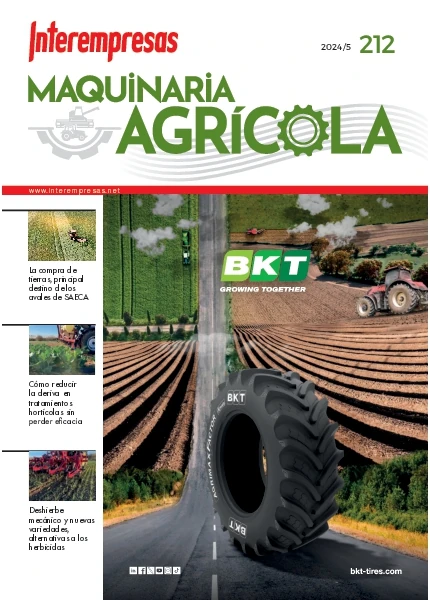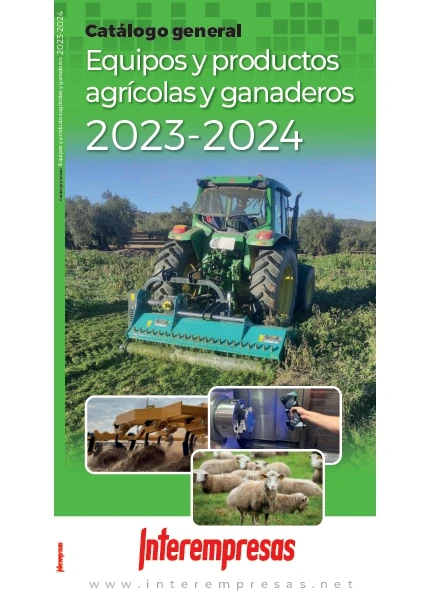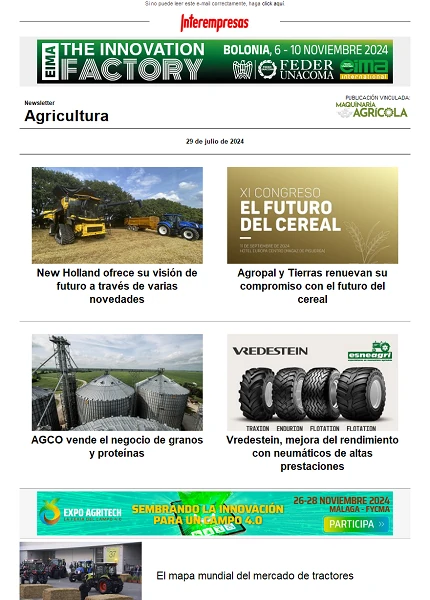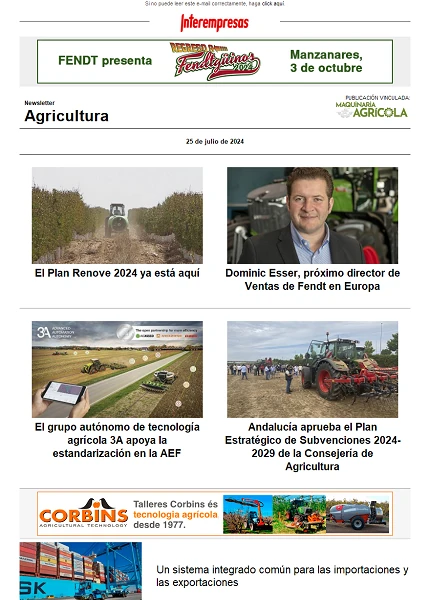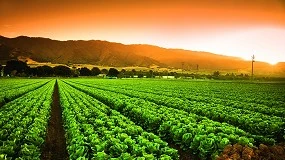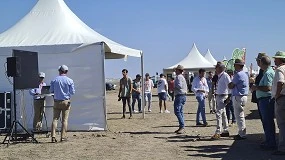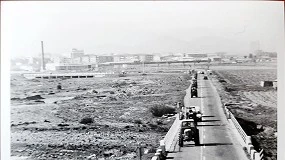II Forum Acorn insists the strategic role of the field, more and more productive and sustainable
May 11, 2011
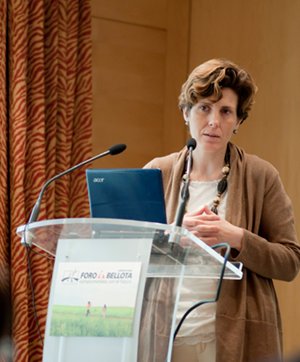
From 13 to 15 April, Seville hosted the Acorn Forum II, organized by Acorn Agrisolutions, specializing in the manufacture and distribution of tools and components for agricultural machinery. With the title 'Committed to the future', this meeting brought together more than 100 professionals in the sector between manufacturers of agricultural machinery distributors, industry specialists and professional farmers. The main event of this forum took place on 14 April, in charge of Judit Anda, general director of production Agraria of the Junta de Andalucía, who highlighted the strategic importance of the agri-food sector in a region where represents a high percentage of the GDP. In addition, the spokesman for the Junta de Andalucía recalled the influence of the sector as a generator of employment, present in a wide variety of farms and, finally, as a backbone of the Andalusian territory. According to Judith Anda, to achieve true sustainable management of agricultural holdings, making them profitable for farmers and at the same time respectful with the environment, it is necessary to work together. In this sense, he insisted on the incorporation of new attractive and simple technologies for the producer, in the implementation of measures for the regulation of the market to achieve price stability, supporting environmentally friendly farming techniques with the environment to reduce the use of inputsto save water and to fight against the degradation of the soil and the loss of biodiversity. In short, the spokesman for the Junta de Andalucía appealed to retrieve the illusion of the sector and field an attractive activity, which captures the interest of young people.
Prospects for the global agriculture
After the opening of the day came the turn of the paper 'Perspectives of world agriculture, with a view to 10 years', by Luis Márquez, President of the Technical Committee of standardization of tractors and agricultural machinery of AENOR. Based on the latest data from the FAO, the Professor Marquez assured that they predict a lower rate of growth of the world's population and a sufficient reserve of arable land to feed the population of the planet. Although from a global perspective should not have problems, if it is true that the primary sector has many local factors, as well as other aspects may be source of conflict. Water scarcity, the instability of prices or access to new technologies will create problems and food crises, something that is already happening in recent years. At this juncture and in the future, will be most interesting to oilseed crops of cereals. In addition, farm income of the developed countries will remain on the upside, grow some crops such as wheat, rice or soybean trade, as well as the demand for products to produce biofuels and also the productions fruit and vegetable. In the view of Luis Marquez, the use of technology will be essential to reduce costs and become more competitive, increase the profitability of farms. In this regard, and according to the rapporteur, because the European farmer working in market conditions much more restrictive and costly, due to the level of demand and regulation of the European Union must be compensated.
Therefore, the new Agricultural Politics Common (PAC) has to support a productive and sustainable agriculture, endowed of sufficient budget so that the helps contribute to keep the profitability of the Mediterranean agriculture.
Regarding the biotechnology, the professor Márquez affirmed that it is positive to reduce the use of phytosanitary ware, save water and improve the quality of the productions, but it is necessary to explain well to the public opinion European that are the OGM and his advantages. On the implantation of new technologies and, in concrete, on the use of the systems GPS and of the agriculture of precision, versaron the others two reports of the morning, by part of Francisco Agúndez, of
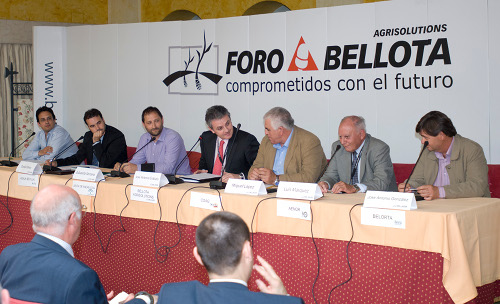
During the meeting were several presentations on the future challenges for the primary sector and the challenge of achieving a more productive and sustainable agriculture.
Search for solutions for the future of the sector
Basically, the Acorn Forum is conceived to put in common and the search for solutions, among all participants, to ensure the viability of the field. Proof of this, was the live poll of the audience, who through a single remote control, gave its opinion on the future issues. The results of this survey were useful for focusing, a posteriori, the evening's debate. Here are some of them:
-The most important challenges for agriculture in the next 10 years will be the professionalization of the farmers and the fact of reaching higher productivity of crops through efficient management of water resources.
-To the problem of the cost of inputs, it is necessary to find solutions for use in common. In addition, to be more competitive there to increase the average size of farms in economic dimension (whether it be irrigated or rainfed).
-The farmers only benefit, in a small percentage of the price increases.
-The incorporation of new technologies depends on the economic dimension of agricultural holdings.
-Genetically modified crops are perceived as a solution to increase the productivity of crops. It's a technology which the sector finds interesting from the economic point of view, to improve the cost, but not looming as a means of improving the quality of food. The resistance of the society to accept genetically modified crops is mainly due to ignorance.
-Agriculture is a sector where the introduction of new technologies is constant and, therefore, the farmer is reasonably ready to implement new technologies that lie ahead.
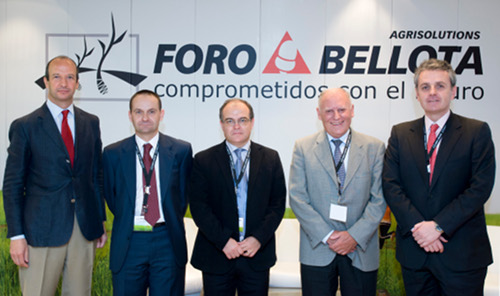
On the basis of these conclusions, José Antonio Erdozia, general manager of Corporación Patricio Echeverría and Bellota Agrisolutions, moderated the debate which took place in the afternoon and in which the main agrarian professional organizations provided his vision of the future. Thus, Miguel Lopez, Secretary general of COAG in Andalusia, and also at the national level, opted for a PAC to support farmers in asset, one that produces jobs and wealth in the countryside. In addition, COAG spokesman demanded legislation to defend the producers of the volatility of prices and of abuses of intermediaries and retail. For its part, Daniel Perez, on behalf of Asaja Andalusia, asked no exclusion for large farms of Community aid, considering them vital to maintain a productive and competitive sector.
Also, Asaja Andalusia spokesperson endorsed the use of genetically modified organisms to have the same technologies that farmers in other areas of the world. Finally, Antonio López, responsible for quality and innovation of FAECA, advocated restructuring the cooperative sector, giving him greater strength, when negotiating with large distribution. In short, all participants corroborated that new technologies will help the sector, although it is first necessary to ensure the profitability of farms to be thus able to invest, in the future, innovation. In this respect, yes laments the existence of specialists to advise the farmer when purchasing the machinery which, in truth, meets their needs. As final conclusions, José Antonio Erdozia stressed that agriculture is a global business with local limitations which it is necessary to establish a balance between supply and demand with effective systems for regulation of the market and price stability. Also, he referred to the fall of the agricultural income (18 per cent since 1990, in Spain), and therefore has to restructure the sector and to cope with a change of regulation to support the product and to do its more profitable work within the framework of a truly sustainable field.


